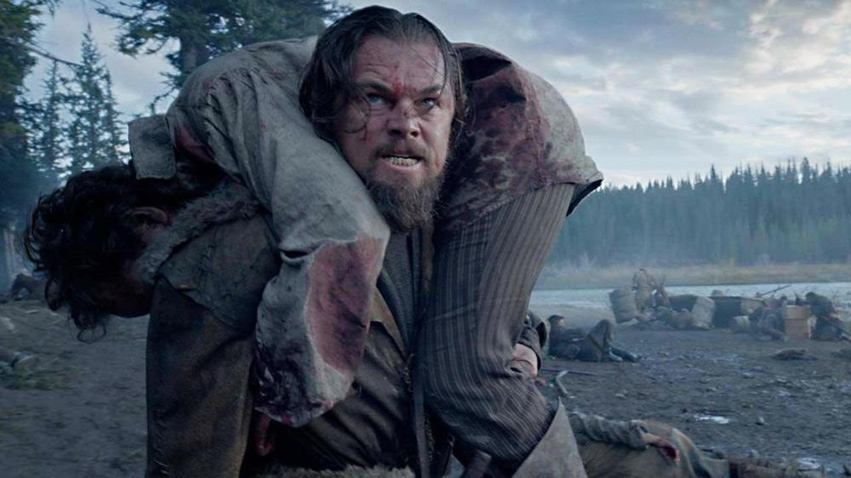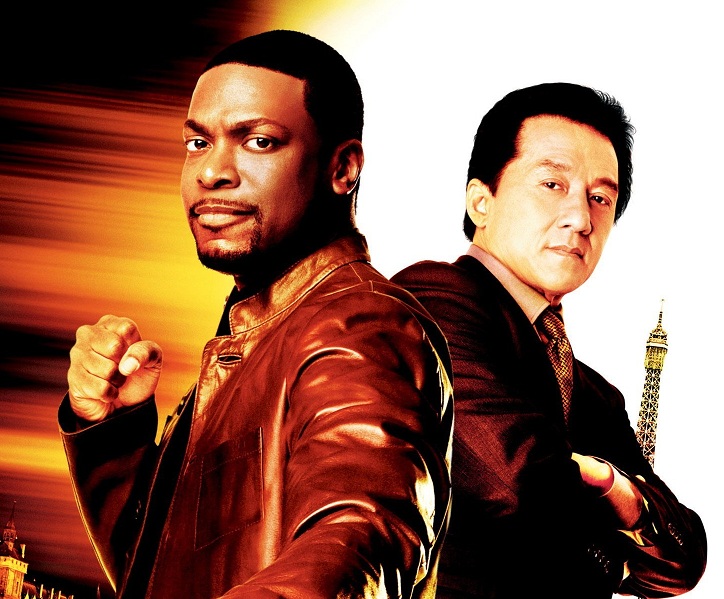By providing your information, you agree to our Terms of Use and our Privacy Policy. We use vendors that may also process your information to help provide our services. This site is protected by reCAPTCHA Enterprise and the Google Privacy Policy and Terms of Service apply.
Brett Ratner on Why He Makes Big Movies and His Advice to First-Time Filmmakers
Eric Kohn

READ MORE: Key West Announces Brett Ratner Film Scholarship
Brett Ratner’s name conveys memories of big Hollywood productions ranging from the “Rush Hour” series to “X-Men: The Last Stand.” But there’s another side to Ratner that fewer people recognize: With his RatPac Entertainment company, Ratner has produced a handful of movies making the rounds this awards season, including “Truth,” “Black Mass” and “The Revenant.” Next year, his company will support the latest efforts from Roman Polanski and Harmony Korine. In short, Ratner plays a broader role in the industry that a lot of naysayers may realize — which is why his appearance at the recent Key West Film Festival last month, to launch the Brett Ratner Florida Student Filmmaker Scholarship, shouldn’t be such a surprise.
At the festival, Ratner presented the $5,000 scholarship to “The Cook, The Knife and The Rabbit’s Finger,” directed by Agustina Bonventura and Nicolas Casanas. Shortly beforehand, he spoke to Indiewire about how his support of aspiring filmmakers emerged from his own experiences and why he doesn’t mind if critics dismiss his work.
What appeals to you about supporting young filmmakers today?
When I was a film student at NYU, there wasn’t a platform like the internet for filmmakers. HBO was the only company that was buying short-form content, and it was only a little bit every month. But there were thousands of short films being made. Now, of course, with the globalization of film, there are so many more opportunities. The cool thing is that while you can make a film with your iPhone, it’s still an expensive medium if you want quality — if you want a mix, if you want to do color correction. Even though there’s software for editing, there’s not really a post-production program for home use. That will happen eventually, but it still costs money to do something of quality. So there wasn’t an outlet for that. Now, Spielberg has someone every month prepare the best of YouTube. There’s so much short-form content better than feature films out there. So there are huge opportunities now for young filmmakers out there to get something seen. As a young filmmaker, I could make something, but how would you get somebody to see it?
You’d have to hope for a good agent.
Exactly. So I got an agent out of the NYU film festival. Thank God that there was an agent there. She just happened to be there the night my short film was showing. Now, I think there are more opportunities. But the reach goes both ways.
After I made my short film, I sent a letter to 40 of my favorite people in the business. I got 39 rejection letters. Katherine Kennedy was the one who gave me money. The interesting thing about that wasn’t that it made me an overnight sensation. Yeah, maybe I got a little popular at NYU. But the truth is it gave me tremendous validation and confidence. That’s what I hope this program I’m supporting at Key West can do. It should give tremendous validation to a young film student — the confidence to continue to pursue what they want to do.
The hardest part for me was not quitting. There were talented people at NYU film school who are probably stock brokers or real estate agents now. The only reason I’m one of the most successful guys out of NYU is because I didn’t quit.
So what attitude does a young filmmaker need at this early career stage?
You have to be in it for the right reasons — because you love storytelling. That’s the skill set of any filmmaker. They have to love that part of that. If you want to do it because you want to be famous, get laid, get rich, or whatever, it’s not going to happen for you. Everyone from Spielberg to Mike Leigh had a strong desire to tell stories.
So how might a filmmaker catch your eye today?
Look, the technical part of filmmaking you can learn in a book. You can teach it to yourself. The harder part is moving the audience — making them laugh, making them cry. If a short film on YouTube or whatever affects me that way, it comes to my attention and makes me interested in that filmmaker’s ability to take me on a journey. Having a point of view is important. The problem is that a lot of filmmakers are trying to define their style. They want to be the next Spielberg or Scorsese. You don’t have to do that with your first film. You just have to discover who you are and what your interests are.
When I was in film school, they separate the wheat from the chaff was films that had a feature look. They had the quality of a feature film. But that’s not as important anymore. It’s just the story that’s being told. That’s why we accept a film shot on an iPhone 5, or something like “Blair Witch.” Once all these digital formats came out, companies like Panavision had to step up their game. Then came the RED camera. Technology was simplifying the whole medium. At NYU, to get recognized by Hollywood, you had to make a short film with a feature-length look to it — lit-well, in focus, beautiful photography.
I financed and produced “The Revenant.” It’s breathtakingly beautiful, but I’d finance it even if it was shot with something else. That only enhances your experience of the movie. If you shot something on an iPhone, it’s going to look grainy blown up on the big screen. So you have to use a different format for that. But there are different formats and media whereas before, you could only make a movie for the big screen.
 But you make movies on big budgets now. So how do you justify all that?
But you make movies on big budgets now. So how do you justify all that?
I always tell film students that there’s no difference between their films and one of my $200 million productions except for the money. Getting real, professional actors costs money.
How is your other career as a producer coming along?
We finance all the Warner Bros. movies, such as “Black Mass,” and some of them I produce myself. We’re doing a lot of movies now, including Warren Beatty’s new one.
When are we going to see that?
Next year. We also just did “Truth” and “I Saw the Light.”
So what kind of movies do you look for as a producer?
We’re all over the place. We’re in the content business, so we want to make all kinds of different movies. My personal taste is great filmmakers. That’s the rule. So we financed Iñarritu’s movie, “The Revenant,” and we’re doing Polanski’s next movie, which is the Dreyfus story. So we’re constantly looking to work with great filmmakers.
And how does that mandate differ from the kind of films you take on as a director?
Obviously, I make pop movies. But I also directed “Red Dragon” and “Family Man.” I’ve done movies in many different genres and I’m probably going to direct a smaller picture for Warner Bros. that’s indie-sized. Before, I just wanted to do big, big, big, big, big. And if I do “Beverly Hills Cop 4,” it’ll be big. But it’s not that I didn’t have an interest in a small movie. It was just that I was just thinking, why would I do that when there are very few directors who can handle a very big movie? It takes a certain type of a person to deal with a movie that has a $230 million budget.
How does that inform your involvement in riskier endeavors, like “The Revenant”?
As a producer, I want to service the director and help him make the film he wants to make. That’s the great thing about RatPac — it’s not just a financing company. There’s a content creator — me, a filmmaker — behind it. I found that directors are embracing us as their partners. They’re saying, “Hey, Brett, can you come in with this or that?” I understand their plight, you know? Harmony [Korine] brought me his last script first. He wrote it in my house in Miami. People don’t know this about me: I’m a cinephile and I love these filmmakers. I just produced a Scorsese short film with Brad Pitt, Leonardo DiCaprio and De Niro. I haven’t necessarily made a movie like that myself, but I produce them.
Does it frustrate you that people don’t know that about you?
Nah. People who know, they know; people who don’t know, I don’t care. It’s not something I’m trying to spread the word on. I understand your angle on it, because of Indiewire, but it doesn’t buy me anything. I love the movies I love. People who know me know that I’m a real fan of movies. I’m not just in it for the commerce. I didn’t become friends with Polanski because I’m sexy and handsome. It’s only the critics that are the snobs. When I did “Rush Hour,” Jonathan Demme, Polanski and Warren Beatty called me and said it was their favorite movie of the year, because they know how hard it is to make an action-comedy that works. How many have been made that haven’t worked, where you didn’t care about the characters and left the theater?
 A lot of young filmmakers do one small movie, sign an agent and then go the studio route. What do you make of that tendency?
A lot of young filmmakers do one small movie, sign an agent and then go the studio route. What do you make of that tendency?
I have no judgement on that. They’re trying to discover who they are. Maybe they always had it in them to make a big movie. The guy who directed “Son of Saul” is probably getting offered 20 movies right now, but he’s choosing to go do a movie in his native Hungary.
That’s my advice to filmmakers: Have your next movie ready to go. Don’t sit around. Go shoot. I only got to where I am because I’d shot millions of feet of film before I shot my first movie. Then I was ready to make them back to back. I wasn’t sitting around reveling in the success of “Rush Hour.” I shot like seven movies in seven years. Then I started taking my time to be more strategic about it. But don’t be strategic about it — just go shoot a movie. At the end of the day, it’s about a body of work. Nobody’s judged by one film, right? You can’t judge Coppola on “The Godfather.” There’s “The Conversation” and “Apocalypse Now” and “The Outsiders.” That’s what you have to look at.
By providing your information, you agree to our Terms of Use and our Privacy Policy. We use vendors that may also process your information to help provide our services. This site is protected by reCAPTCHA Enterprise and the Google Privacy Policy and Terms of Service apply.

















